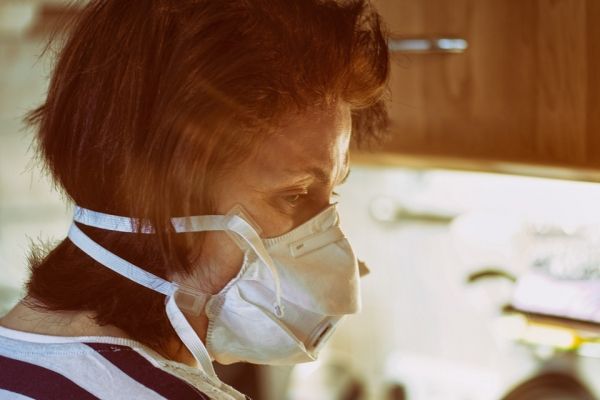Which patients will develop a severe form of Covid-19? This is a key question that needs to be answered to improve the individual management and prognosis of patients. In a study published in Science on July 13, teams from AP-HP, Inserm, Université of Paris, Institut Pasteur and Institut Imagine describe a unique and unexpected immunological phenotype in severe and critical patients, consisting of a severely impaired response of interferon (IFN) type I, associated with a persistent blood viral load and an excessive inflammatory response. These data suggest that IFN type I deficiency in the blood could be a hallmark of severe forms of Covid-19. It also supports the potential value of therapeutic approaches that combine early administration of IFN, with appropriate anti-inflammatory therapy targeting IL-6 or TNF-α, in patients preventing severe disease forms.
Approximately 5% of people with Covid-19 progress to a severe or critical form, including the development of severe pneumonia that progresses to acute respiratory distress syndrome. While these forms sometimes occur early in the course of the disease, clinical observations generally describe a two-stage progression of the disease, beginning with a mild to moderate form, followed by respiratory aggravation 9 to 12 days after the onset of the first symptoms. This sudden progression suggests deregulation of the host inflammatory response. A growing number of indications suggest that this aggravation is caused by a large increase in cytokines. This runaway inflammatory response is correlated with massive infiltration in the lungs of innate immune cells, namely neutrophils and monocytes, creating lung damage and acute respiratory distress syndrome.
By analogy with a genetic disease leading to a similar pulmonary pathology identified at Institut Imagine by the team of Inserm researcher Frédéric Rieux-Laucat, the initial hypothesis assumed excessive production of interferon (IFN) type I, a marker of the response to infections. However, in seriously ill patients, the teams of Darragh Duffy (Dendritic Cell Immunobiology Unit, Institut Pasteur/Inserm), Frédéric Rieux-Laucat (Laboratory of Immunogenetics of Pediatric Autoimmune Diseases at Institut Imagine – Inserm/Université de Paris), Solen Kernéis (Mobile Infectiology Team, AP-HP. Centre – Université of Paris) and Benjamin Terrier (Department of Internal Medicine, AP-HP. Centre – Université of Paris) show that the production and activity of type-I IFN are strongly reduced in the most severe forms of Covid-19.
Read more at INSERM (Institut National DE La Santé ET DE La Recherche Médicale)
Photo Credit: fotoblend via Pixabay


